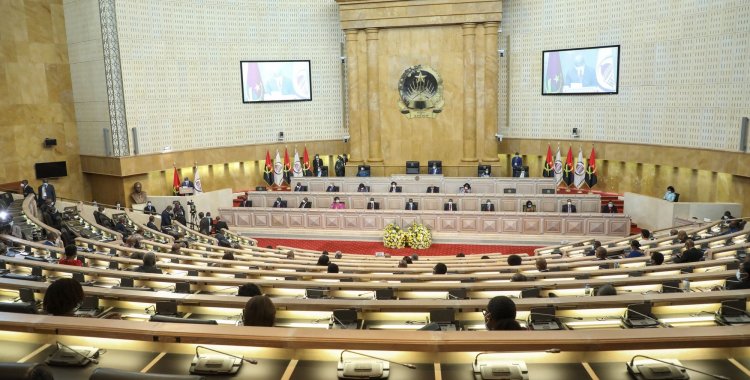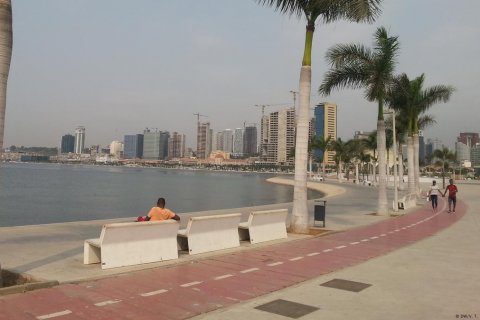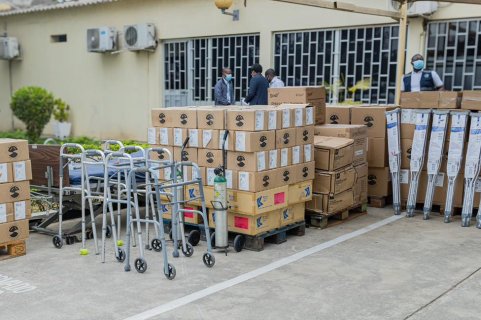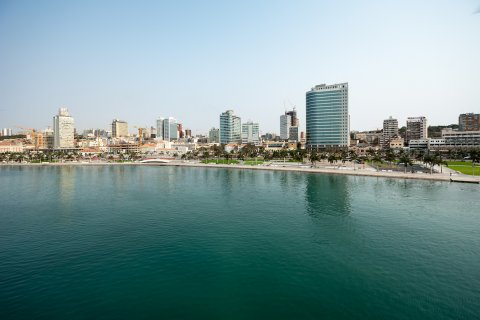"We reduced our budget to 30 percent and this effectively implied cuts in some matters that were considered important, but we had to go to the essentials", said Agostinho Pedro de Néri.
Without giving any figures, the official, who was speaking to journalists at the National Assembly headquarters, where the solemn plenary session to close the fifth legislature took place, said that, despite some mishaps, the five-year period was positive.
"The balance is positive, we had a legislative cycle with some mishaps that we can consider in two moments: the economic and financial situation that the country experienced in the first years and then the pandemic", he said.
But all this, he observed, "forced to find intelligence, rationality in order to respond to the challenges that were posed, it was a challenging period, a period in which the deputies had a very considerable engagement in what is the legislative production".
Regarding parliamentary administration, the Secretary General of Parliament considered that it was necessary to reinvent itself "to respond to questions and challenges".
"We have printed new procedures in order not to make Parliament so affected in this period of covid-19", he stressed.
Financially, Agostinho Pedro de Neri stressed that the body had to "relegate some tasks" to the background, choosing what was considered essential.
"We did it so that Parliament would not stop exercising what is its 'core business', which is to legislate, this is what is fundamental", he noted.
On the composition of the next parliament, Pedro Agostinho de Neri, said that it will result "from what the elections on the 24th of this month determine", leaving an appeal for electoral participation.
"The only note I want to leave is that we must all go to the polls, our participation is extremely important, we are determinant of these results, it would be very interesting if the abstention level was as low as possible", concluded the official.
On the occasion, the President of the National Assembly highlighted the approval of the first revision of the Constitution as the "first great worthy achievement" of the fourth legislature, which ended this Monday, and also valued the spirit of surrender of the deputies.
According to Fernando da Piedade Dias dos Santos, the closing of the fifth and final legislative session of the IV legislature of the National Assembly also marks the end of a cycle of great challenges and at the same time of great achievements.
"The first major achievement worthy of mention is, without a doubt, the approval of the first constitutional revision to the Constitution of the Republic of Angola, which allows us today to have a more cohesive and consensual main law with regard to the matters that have been amended", said the politician.
Fernando Dias dos Santos, who was speaking at the solemn plenary meeting to close the fifth parliamentary year of the fourth legislature, also pointed to the approval of the Penal and Criminal Procedure codes as achievements.
These important instruments "have greatly contributed to a fairer Angolan justice, as proclaimed by the classics of the philosophy of the State and the law", he stressed.
The President of Parliament said he was fully aware that the approval of the aforementioned legal diplomas, "by itself, is not a sufficient condition for achieving the recommended results".
"But it is guaranteed to be a necessary condition for this dehydrated condition," he pointed out.
The Organic Law on the Organization and Functioning of the Supreme Court, the Organic Law on the Courts of Appeal, the Law on the Organization and Functioning of Judicial Secretariats, the Law on the Right of Popular Action, the Law amending the Angolan Criminal Procedure Code and the Law approving the Legal Regime of Public Appropriation were some of the diplomas approved in the legislature that ended this Monday.
For the President of the National Assembly, the achievements of this period are not restricted to the legislative domain, but also extend to the domain of control and supervision of the executive's action.
"To the extent that in this legislature we have witnessed a notable increase in deputations at the level of all provinces, which allowed deputies to see 'in loco' the projects carried out by the executive, to assess the degree of physical and financial execution", he noted.
The also deputy of the Popular Movement for the Liberation of Angola (MPLA) also highlighted the implications of covid-19 on parliamentary activity, noting that the legislative body "also had to reinvent itself".
"It was thanks to this gigantic challenge that we achieved a great achievement, embodied in an important technological investment that allows us, today, to hold meetings, make concerts and participate in events by videoconference", he stressed.
The IV legislature "is also positively marked by the investment made in human capital, materialized by continuous training, aimed at empowering the entire parliamentary community and providing it with essential knowledge to improve its level of performance".
The institutionalization of the symbols of the National Assembly, namely the flag, the insignia and the gavel, which identify the legislative power, were also highlighted in the intervention.
Fernando Dias dos Santos also welcomed the fact that "an atmosphere of fraternity and respect has been preserved throughout this journey, despite the multi-party composition of the Angolan parliament and the ideological differences arising from this reality".
"Even in moments of disagreement, the highest interest of the nation and the sense of State on the part of all representatives of the people always prevailed", he concluded.
The legislature, which has five parliamentary years, began in 2017 and officially ended this Monday, the week before the fifth general elections in the country's political history, scheduled for 24 August.
The fifth legislative session of the fourth legislature of Parliament was composed of 220 deputies, most of which belonged to the Popular Movement for the Liberation of Angola (MPLA), with 150 deputies.
The National Union for the Total Independence of Angola (UNITA) elected 51 deputies, the Broad Convergence for the Salvation of Angola - Electoral Coalition (CASA-CE) 16 deputies, the Social Renewal Party (PRS) two deputies and the National Front for Liberation of Angola (FNLA) only one deputy.







